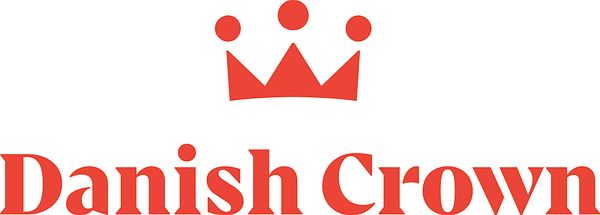
Press release -
Danish Crown’s owners due to receive 1.6 billion kroner
Danish Crown has never before generated as high earnings as we did in the financial year 2019/20. With earnings improving across the group, Danish Crown’s owners can look forward to receiving a historically high supplementary payment for their supply of pigs.
Four years ago, Danish Crown defined a strategic goal of lifting the settlement prices for the owners’ pork by DKK 0.60 per kg relative to the European average. Danish Crown has fulfilled that goal in the 2019/20 financial year, when we paid on average DKK 1.31 more than the European index.
“This is a strong result. Our large exports to Asia, and China in particular, which has been affected by African Swine Fever, have secured high settlement prices of pork for our farmers. At the same time, DAT-Schaub and our processing activities have substantially lifted earnings. These developments reassure us that we made the right decision with our 4WD strategy of creating more processing across categories and markets, and we now have a stronger brand that may contribute to a more sustainable production,” says Jais Valeur, Group CEO of Danish Crown.
Danish Crown’s revenue increased by 8 per cent to DKK 60.8 billion. Operating profit rose 13 per cent to DKK 2.860 billion, while the net profit was a record-high DKK 2.141 billion.
Of this amount, DKK 1.6 billion will be distributed to the owners. The supplementary payment for the supply of pigs will be DKK 1.35 per kg and DKK 1.20 per kg for sows, while cattle suppliers receive a supplementary payment of DKK 1.25 per kg. In addition, DKK 112 million will be deposited in the personal members’ accounts. For an owner supplying 10,000 pigs annually, this equates to about DKK 1.3 million.
“Our company is stronger than ever following a year in which we initially achieved a historically high payment for our pigs and then saw settlement prices decrease over the course of six months due to COVID-19 and, most recently, the outbreak of African Swine Fever in Germany. These are external factors affecting the markets, but they have not derailed our business, which I consider a major strength,” says Erik Bredholt, the Chairman of Danish Crown.
The global markets for pork and beef have been affected by the COVID-19 crisis since early spring. The settlement price for our farmers’ supplies fell in the period from 1 March to 1 October by 28 per cent for pigs, 53 per cent for sows and 5 per cent for cattle. Unlike for pigs, prices of beef and veal were already at a low level before COVID-19 toppled the markets.
“Our employees have delivered a truly extraordinary performance during the COVID-19 crisis. We have demonstrated that we have a robust supply chain, even though a few of our factories during periods were challenged by COVID-19. This has helped strengthen our customer relationships, and consequently – despite a sharp decrease in sales to the foodservice segment in the second half of the financial year – we managed to maintain satisfactory earnings,” says Jais Valeur.
Generally speaking, there were improvements across the group. DAT-Schaub delivered another record-strong performance, recording an operating profit increase of more than 50 per cent. Our Swedish company KLS more than doubled its earnings, and a strong market for canned products and pizza toppings ensured growth of more than 30 per cent for Danish Crown Foods. In our Polish business Sokolow, earnings remain strong, although a weaker Polish zloty caused slightly lower results in Danish kroner terms.
Despite lower prices Danish Crown Beef managed to increase its earnings in the year. The German part of the business is performing far better than it did a year ago and remains buoyant. In the Danish market, dedicated sales efforts have been made, and productivity at our factories continues to improve. In addition, developments have turned around in Scan-Hide, where a new management team was in place in the summer of 2019. The company is one of Europe's leading suppliers of cattle hides for the leather industry and took a strong hit from the COVID-19 crisis because the leather industry closed down, but results nevertheless improved substantially.
The earnings improvement has contributed to a historically strong balance sheet and capital base at Danish Crown. Following a divestment in the last financial year and a dedicated effort in all parts of the group, our working capital has been substantially reduced. Consequently, our solvency ratio is now 33 per cent, against 26 per cent a year ago, and the financial gearing has been reduced from 3.2 to 2.1.
“We are on the right track in all parts of our business, but there are still benefits to gain from increased cooperation and greater integration across the group. At the same time, we will make an even greater contribution to the sustainability debate by pursuing specific initiatives. We have launched an ambitious plan for the use of soy, and by the end of 2020, all Danish Crown’s Danish pig suppliers will be a part of the group’s sustainability programme, the Climate Track, which will provide us with a strong platform from which to launch new initiatives,” says Jais Valeur.
The Board of Director’s recommendation for supplementary payments must be approved by the Board of Representatives later in November.
Topics
At Danish Crown we focus on food in all parts of the value chain. Food is what we produce and food is what we sell to customers and consumers across the world.

